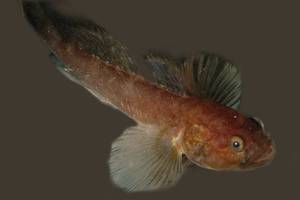Well it's been rare in recent times to find a positive story about life in the oceans, but this week, researchers from the University of Bern in Norway have shown that there is a species that is unexpectedly thriving.
The study, published in Science is about a fish called the bearded goby, Sufflogobius bibarbatus, and it seems to be an unexpected winner in an ecosystem that had been severely damaged - the Benguela upwelling system off the coast of Namibia. In the 1960s, aggressive overfishing, combined with environmental changes in the area, led to a collapse of the sardine population and a shift in the structure of the ecosystem. There was a massive rise in jellyfish numbers, and the sea bed was covered in an anoxic, sulphurous mud layer.
But the team led by Anne Utne-Palm found that the bearded gobies seemed to be thriving. They showed through a series of very elegant behavioural and physiological experiments that they were able to hide in the low oxygen mud on the sea floor from predators, and to feed on the bacteria in the mud. They turned down their metabolism to survive in the low oxygen sludge, ascending up into the more oxygen rich layers of the water under the safety of darkness to digest their food. They also munch away on the jellyfish, returning what were previously thought to be 'dead end' resources back to the food chain by then becoming prey themselves to larger fish.
The researchers see the goby population as a kind of stabilising factor, able to buffer the local fisheries against changes in environmental conditions in the future - if oxygen levels go down, goby predator numbers will go down, the goby population will increase, and will allow the larger fish populations to recover once conditions become more favourable.
It's really quite a promising finding, because it shows that it is possible for an apparently collapsed marine ecosystem to recover.










Comments
Add a comment